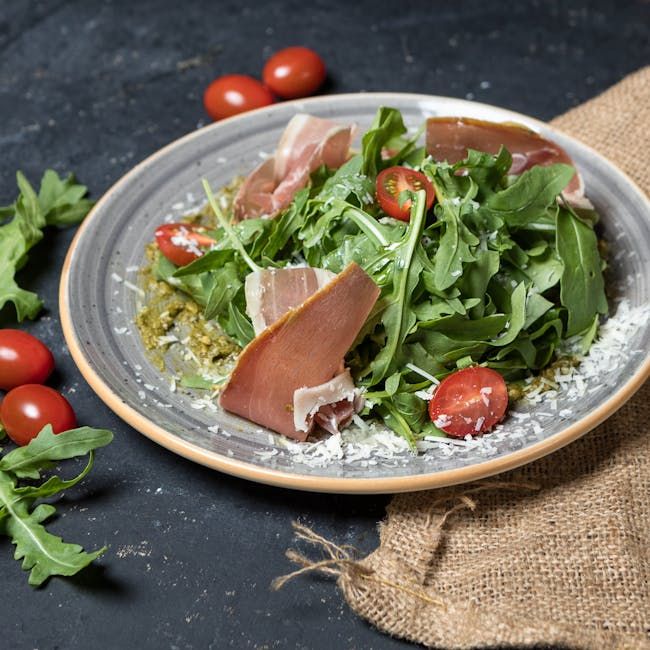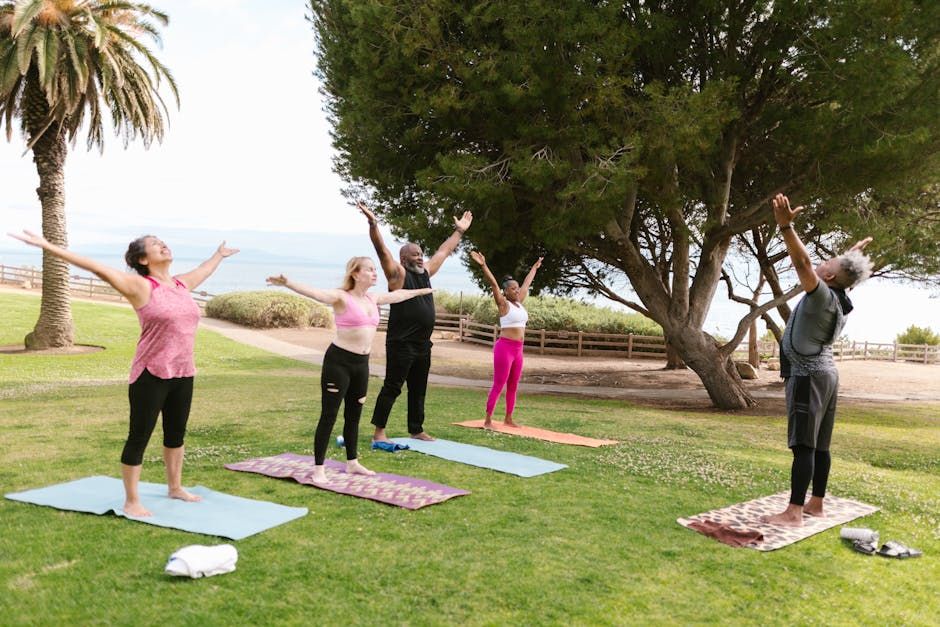Living longer isn’t just about adding more years to your life, but more life to your years. What if you could feel vibrant, strong, and engaged well into your 90s and beyond? While genetics play a part, science shows that our daily choices have a far greater impact. Research from institutions like Harvard Medical School reveals that adopting a few key healthy habits can extend life expectancy by over a decade. It’s less about a magic pill and more about the small, consistent steps we take. For more actionable ideas, check out these healthy aging tips.
This guide will walk you through science-backed strategies, from the food on your plate to the connections you nurture, helping you build a lifestyle that supports not just a longer lifespan, but a richer healthspan.
How Can We Live Longer? Understanding Longevity and Life Expectancy
When we talk about longevity, it’s easy to focus on a single number. But the real goal is to increase our healthspan—the years we live in good health, free from chronic disease and disability—not just our lifespan. Think of your chronological age as the number of birthdays you’ve had, while your biological age reflects how well your body is functioning on a cellular level. The exciting news? You have significant influence over your biological clock.
The Role of Genetics Versus Lifestyle
You might think your genes seal your fate, but that’s only a small part of the story. Twin studies suggest that lifestyle choices are a much more powerful predictor of longevity than heredity alone. In fact, research indicates that lifestyle factors can account for the majority of our health outcomes. This means your daily habits—what you eat, how you move, and how you manage stress—can actively work to offset genetic predispositions, giving you incredible power over your own aging process.
What Science Tells Us About Aging
At a microscopic level, aging involves several key processes. You may have heard of telomeres, the protective caps on the ends of our chromosomes that shorten over time. Other factors include cellular senescence (when cells stop dividing), oxidative stress from free radicals, and chronic inflammation. Lifestyle interventions can directly combat these mechanisms. For example, a healthy diet and regular exercise can protect telomeres and reduce inflammation, effectively slowing the aging process right down to your DNA. Researchers are even developing epigenetic clocks that measure biological age, confirming that positive lifestyle changes can literally make you younger from the inside out.

Nutrition and Diet for Longevity
What you eat is one of the most powerful tools you have for extending your healthspan. Evidence consistently points toward dietary patterns that are rich in whole, plant-based foods. Diets like the Mediterranean and those found in the world’s Blue Zones (regions with the highest concentrations of centenarians) are consistently linked to longer lives and a lower risk of chronic disease.
The Mediterranean Diet and Plant-Based Eating
The Mediterranean diet isn’t a restrictive plan but a lifestyle built on fruits, vegetables, whole grains, legumes, nuts, and healthy fats like olive oil. This way of eating is proven to reduce the risk of heart disease, metabolic syndrome, and diabetes. It’s no surprise that in the Blue Zones, up to 95% of the diet is plant-based. They prioritize beans, greens, and whole grains, showing that you don’t need expensive superfoods to live a long, healthy life.
Foods That Promote Longevity
To get specific, some foods have exceptionally strong evidence supporting their life-extending benefits:
- Cruciferous Vegetables: Think broccoli, kale, and Brussels sprouts. They are packed with compounds that fight cellular damage.
- Berries: Loaded with antioxidants, berries help combat oxidative stress.
- Nuts and Seeds: Walnuts, in particular, are a great source of omega-3 fatty acids.
- Fatty Fish: Salmon and sardines provide anti-inflammatory omega-3s.
- Legumes: Beans, lentils, and chickpeas are cornerstones of the Blue Zone diets, providing fiber and protein.
- Green Tea: Rich in polyphenols that protect your cells.
These foods work by providing a powerful mix of antioxidants, anti-inflammatory compounds, and fiber, which are essential for protecting you against age-related diseases.
Caloric Restriction and Eating Patterns
Have you ever heard the Okinawan phrase, “hara hachi bu”? It means eating until you’re 80% full. This practice of mild caloric restriction has been linked to exceptional longevity. Studies like the CALERIE trial suggest that eating moderately fewer calories—without malnutrition—can slow the aging process and extend healthspan. This doesn’t mean extreme dieting, but rather being mindful of portion sizes and listening to your body’s hunger cues. However, it’s crucial to approach any form of caloric restriction carefully, ideally with guidance from a healthcare professional.
Physical Activity and Exercise for a Longer Life
If there’s one “magic bullet” for longevity, it’s exercise. Large-scale studies confirm that regular physical activity is one of the most effective ways to live longer and healthier. The benefits are vast, from strengthening your heart and bones to boosting cognitive function and mood. Consistent movement is fundamental to staying active as you age.

How Much Exercise Do You Need?
The WHO and American Medical Association provide clear guidelines:
- 150-300 minutes of moderate-intensity aerobic exercise (like a brisk walk or bike ride) per week.
- OR 75-150 minutes of vigorous-intensity exercise (like running or swimming laps).
- Plus, muscle-strengthening activities at least twice a week.
Meeting these goals can slash your risk of cardiovascular mortality by up to 31%. Even better, research shows that exceeding these guidelines can reduce all-cause mortality by nearly 42%.
Types of Exercise That Extend Lifespan
The best exercise is the one you enjoy and will stick with. A well-rounded routine includes:
- Aerobic Exercise: Walking, swimming, cycling, and dancing improve cardiovascular health.
- Strength Training: Lifting weights or using resistance bands builds muscle and bone density. This is also key for tips for fall prevention as it improves stability.
- Flexibility and Balance: Yoga and tai chi enhance mobility and prevent injuries.
People in Blue Zones don’t necessarily hit the gym. Instead, they incorporate natural movement into their day—walking, gardening, and doing household chores without modern conveniences. This shows that consistency is more important than intensity.
Sleep Quality and Rest
Sleep is not a luxury; it’s a biological necessity. Consistently getting 7-8 hours of quality sleep is strongly linked to longevity. Both too little and too much sleep can increase mortality risk, particularly from cardiovascular disease. It’s during deep sleep that your body performs critical repair work, consolidates memories, and flushes out toxins from the brain.

Sleep Habits in Blue Zones
In Blue Zones, people tend to follow natural sleep-wake cycles, rising with the sun and winding down after sunset. Many also take short afternoon naps. This alignment with our natural circadian rhythm supports restorative sleep, which in turn benefits cardiovascular health, cognitive function, and overall resilience. Developing consistent sleep habits that honor your body’s natural rhythms can profoundly impact cardiovascular health, cognitive function, and overall resilience.
Stress Management and Emotional Well-Being
Chronic stress is a silent ager. It floods your body with cortisol, fuels inflammation, and accelerates biological aging right down to your telomeres. Research from Yale has shown that a heavy toxic stress load can shorten your lifespan even more than other health factors. The good news? Emotional resilience and effective stress management can completely negate these effects.
The Impact of Stress on Aging
When you’re constantly stressed, your immune system weakens, your blood pressure rises, and your risk for numerous diseases climbs. Regular physical activity is one of the most powerful stress-reduction tools available, as working out improves mood and helps regulate cortisol levels, creating a protective buffer against the harmful effects of chronic stress. The Yale study found that individuals who were better at regulating their emotions and practicing self-control showed no signs of stress-induced aging. This proves that it’s not the stress itself but how we respond to it that matters.
Practical Stress Reduction Techniques
You can build resilience and manage stress with simple, daily practices. The Blue Zones call this “downshifting.” Try incorporating these techniques:
- Mindfulness and Meditation: Even a few minutes a day can lower cortisol.
- Deep Breathing: A simple, powerful tool to calm your nervous system instantly.
- Time in Nature: Spending time outdoors has proven mental and physical benefits.
- Engaging Hobbies: Make time for activities that bring you joy and allow you to unplug.
Social Connections and Relationships
We are social creatures, and our relationships may be just as important for longevity as diet and exercise. A landmark meta-analysis found that people with strong social ties have a 50% greater likelihood of survival compared to those with weak connections. That’s a health impact comparable to quitting smoking.

Why Relationships Matter for Longevity
Meaningful social connections trigger the release of hormones like oxytocin, which lowers stress and inflammation. Belonging to a community provides emotional support, buffers against depression and anxiety, and encourages healthy behaviors. In short, good friends are good for your health.
Building and Maintaining Social Networks
Nurturing your social circle is an investment in your well-being. This can be especially important as we get older, and it’s never too late to start. If you’re looking for ideas on how to make friends in your fifties, consider joining a club, volunteering, or taking a class. Prioritizing face-to-face connection in a digital world is one of the most powerful things you can do for your health.
Preventive Healthcare and Regular Checkups
Being proactive about your health is essential. Regular checkups and screenings can catch potential issues before they become serious, which is a cornerstone of living a long, healthy life. This is especially true as you enter different life stages, making it important to understand how to be healthy at 50 woman and beyond.
Essential Health Screenings by Age
Work with your doctor to stay on top of key preventive screenings. These often include:
- Blood pressure and cholesterol checks
- Diabetes screenings
- Cancer screenings (colonoscopies, mammograms)
- Bone density tests
- Vision and hearing assessments
Early detection dramatically improves treatment outcomes and is a simple step toward a longer, healthier future.
Avoiding Harmful Habits
Just as important as adding healthy habits is removing harmful ones. Certain behaviors can significantly shorten your lifespan and reduce your quality of life. Research on the key habits for longevity consistently highlights the importance of avoiding smoking and excessive alcohol.
The Impact of Smoking and Alcohol
It’s no secret that smoking is one of the most damaging things you can do to your health, but the benefits of quitting are almost immediate, at any age. When it comes to alcohol, moderation is key. While some studies have shown a potential benefit to moderate consumption, excessive drinking increases mortality risk. In the Blue Zones, consumption is typically low to moderate, often with friends and food.
Maintaining a Healthy Weight
Maintaining a healthy body weight through a balanced diet and regular activity is strongly linked to a longer life with fewer chronic diseases. The goal isn’t to chase a number on the scale through extreme diets, but to find a sustainable, healthy equilibrium that supports your long-term well-being.
Additional Lifestyle Factors
Beyond the major pillars, other small but significant factors can contribute to a long and vibrant life.
Hydration and Healthy Aging
Don’t underestimate the power of water. A recent NIH study found that adults who stay well-hydrated develop fewer chronic conditions like heart and lung disease and live longer than those who don’t get enough fluids. Aim for consistent hydration throughout the day to support every system in your body.
Purpose and Meaning in Life
Having a reason to wake up in the morning is a powerful driver of longevity. In Okinawa, they call it ikigai; in Nicoya, it’s a plan de vida. A sense of purpose provides motivation, reduces stress, and promotes healthier behaviors. Whether it’s through work, family, volunteering, or a spiritual practice, finding your “why” can add years to your life, and life to your years.
Conclusion
The journey to a longer, healthier life isn’t about perfection; it’s about progress. By integrating these science-backed strategies—nourishing your body, moving with joy, managing stress, nurturing relationships, and finding purpose—you can profoundly influence your healthspan. The power to shape your future is in your hands, starting with the very next choice you make.
At Not One Type, we believe in empowering you with the knowledge and inspiration to build a life you love. We’re here to support you every step of the way.
Frequently Asked Questions (FAQs)
Can you reverse aging and live longer?
While you cannot fully reverse chronological aging, you can absolutely slow your biological aging process. Healthy habits like a nutritious diet, regular exercise, and stress management can protect your telomeres, reduce inflammation, and improve your healthspan at a cellular level. Studies show these lifestyle changes can add up to 14 years to your life expectancy.
What is the single most important factor for living longer?
According to experts at the National Institutes of Health, regular physical activity is the single most critical behavior for living a long and healthy life. Exercise is particularly effective at extending your active life expectancy—the years you live free from disease and disability.
How do Blue Zones populations live so long?
People in Blue Zones share common lifestyle patterns: a predominantly plant-based diet rich in beans, constant natural movement, strong social and family ties, a clear sense of purpose, and daily stress-reduction rituals. Their longevity proves that lifestyle, not genetics, is the primary driver of a long, healthy life.
Does stress really shorten your lifespan?
Yes, chronic stress can significantly shorten your lifespan by accelerating biological aging. Research from Yale shows that it can damage telomeres, increase inflammation, and elevate disease risk. However, the same study found that developing emotional regulation skills and resilience can protect you from these harmful effects.
How much exercise do I need to live longer?
The American Medical Association recommends at least 150-300 minutes of moderate physical activity or 75-150 minutes of vigorous activity each week, plus strength training twice a week. Meeting these minimums can reduce cardiovascular mortality by 22-31%, while doing even more can offer the greatest protective benefits.
What foods help you live the longest?
The foods most strongly linked to longevity are those central to diets like the Mediterranean and Blue Zones patterns. These include cruciferous vegetables (broccoli, kale), antioxidant-rich berries, nuts (especially walnuts), fatty fish, legumes, whole grains, olive oil, and leafy greens. They fight inflammation and cellular damage.
Is it ever too late to start healthy habits for longevity?
No, it is never too late. Research consistently shows that adopting healthy habits at any age provides significant benefits. Whether you quit smoking, start exercising, or improve your diet in your 50s, 60s, or beyond, you can still extend your lifespan and dramatically improve your quality of life.


Có thể bạn quan tâm
How to Make Friends in Your Fifties: Proven Strategies to Build Meaningful Connections
Making friends in your fifties can feel like a unique challenge, but it’s far from...
Nov
How to Make Friends as an Older Woman: 12 Proven Ways
Making friends as an older woman is not only possible but essential for your mental...
Nov
Complete Guide to Fall Prevention: Tips to Keep Seniors Safe and Independent
Falls represent one of the most serious health threats facing older adults today. According to...
Nov
Staying Active as You Age: A Complete Guide to Exercise and Fitness for Older Adults
Staying active as you age is one of the most powerful choices you can make...
Nov
How to Be Healthy at 50: A Complete Wellness Guide for Women
Turning 50 is a significant milestone. It’s a time of transition, reflection, and new opportunities,...
Nov
How to Age Gracefully in Your 60s: A Complete Guide to Thriving in Your Sixth Decade
Your 60s represent a vibrant decade filled with opportunities for growth, wellness, and fulfillment. Aging...
Nov